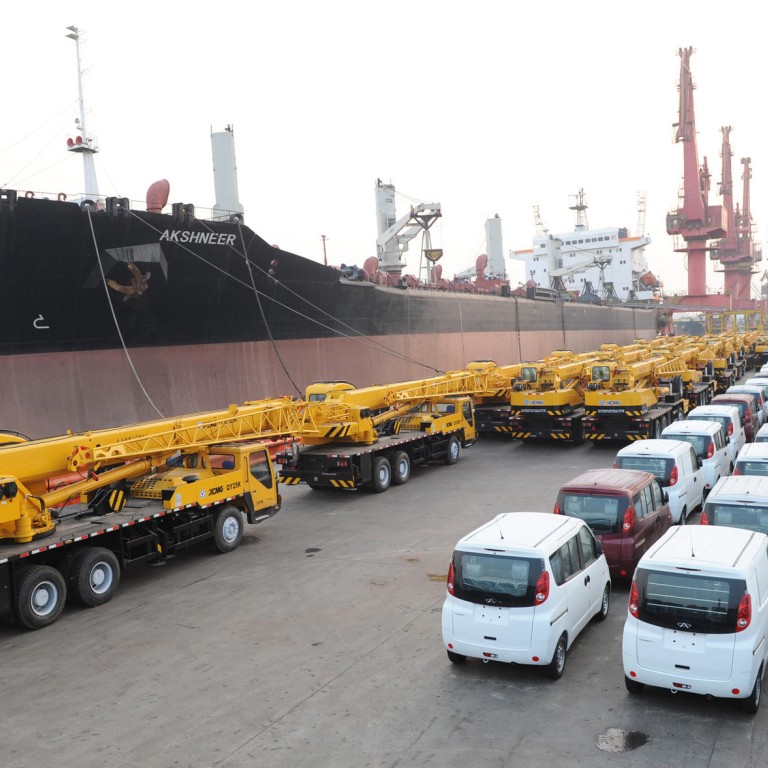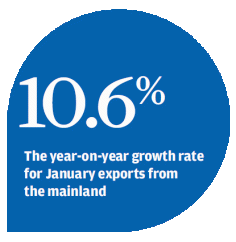
Hot money may have artificially boosted China's January exports
Unexpectedly strong export and import growth for January renews concerns about speculative inflows brought about by inflated trade deals
The mainland's trade data in the first month of 2014 painted a strong yet controversial picture.

But the numbers from the Customs Bureau in Beijing yesterday renewed concerns about large speculative inflows through inflated trade deals, possibly putting upward pressure on the yuan and complicating interpretation of the real trade situation.
Export growth accelerated to 10.6 per cent in January year on year from a 4.3 per cent year-on-year rise in December, while imports gained 10 per cent, also faster than the 8.3 per cent growth in the previous month. The trade surplus expanded to US$31.86 billion from a surplus of US$29 billion a year earlier.
Economists were both encouraged and puzzled by the trade data because the better-than-expected numbers came in despite fewer working days last month. The Lunar New Year holidays began late January this year.
"The surge in exports is likely a result of large inflows of hot money into the mainland betting on yuan appreciation. The genuineness of the figures became suspicious again," said Liu Ligang, head of Greater China economy at ANZ Bank.
Citigroup economist Ding Shuang said, "There are reasons to believe the problem is less severe compared with last year, since in areas where data manipulation was suspected to be most rampant last year, trade growth dropped significantly.
"While trade data tends to be volatile at the beginning of a year, and we suggest looking at combined January-February growth, the January data nevertheless supports our assessment that global recovery would reduce the downside growth risks," he said.
The mainland's exports to Hong Kong, the place chosen by many Chinese firms to forge round-trip trade deals, fell 18 per cent year on year in January.
Last year, trade companies forged fake transactions to funnel more foreign capital across the border into the mainland to take advantage of a strong yuan. The situation eased after the foreign exchange regulator tightened controls on speculative inflows in May. But there have been signs that such arbitrage activities may have re-emerged.
Most economists predicted export growth almost stalled or even fell last month compared to last year.
In January last year, exports surged 25 per cent and imports gained 28.8 per cent year on year due to rampant over-invoicing at trade companies.

